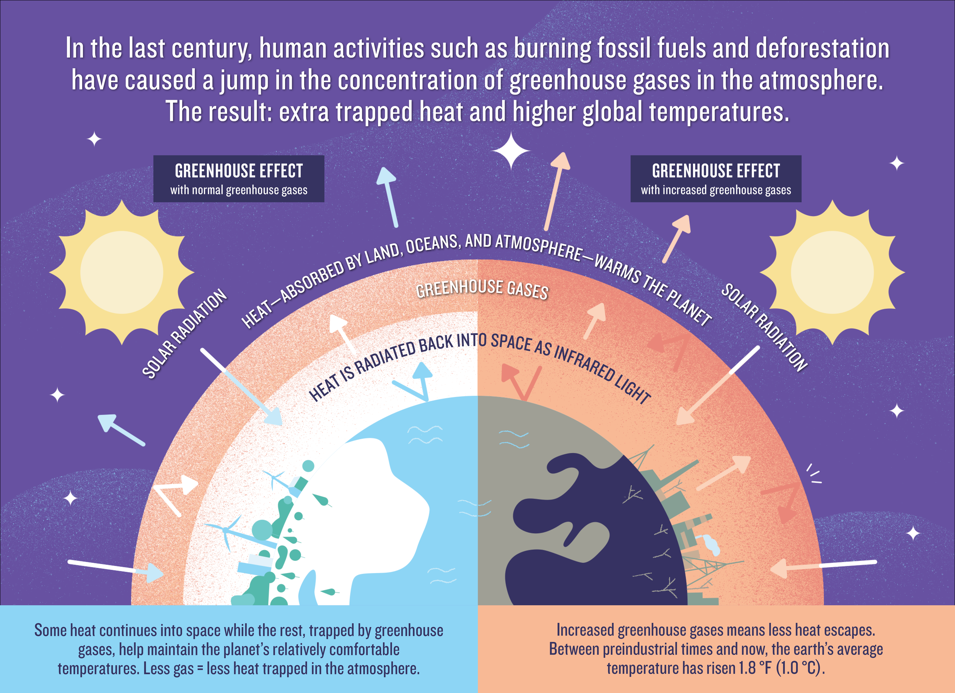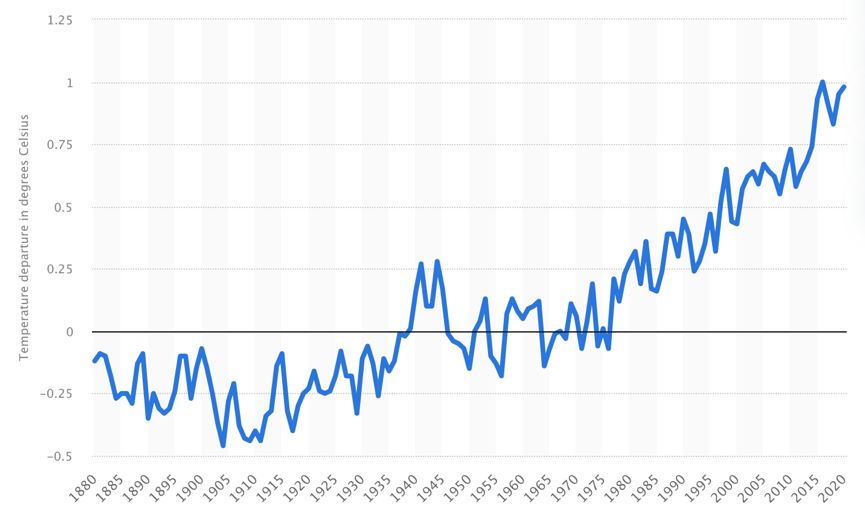Introduction
Among the issues of most concern to humanity, it is customary to single out ecological issues. This is not surprising, considering that the possibility of human existence directly depends on ecological security issues. For example, one of the most pressing issues on the current agenda is rapid climate change caused by the greenhouse effect. While recently, it might have seemed that such change was the result of natural processes in nature since the UN report in 2021, it is clear that the critical responsibility for climate change lies with industrial industry (Allan et al., 2021). As a consequence of global warming, most animal and plant species will become extinct, the Atlantic glaciers will melt, and the increased volume of the world’s oceans will flood half of the densely populated cities and countries. The effects of climate change seem devastating and detrimental to humans, and most importantly, such a trend is unstoppable (Allan et al., 2021). This report serves an informative function and is designed to explore the nature of global warming through the greenhouse effect.
The Nature of the Greenhouse Effect
First of all, it should be clarified that the greenhouse effect is commonly referred to as an increase in the temperature of the lower atmosphere, resulting in an increase in the surface temperature of the Earth. This effect is remarkably similar to the greenhouse effect, only instead of a few square meters on a farm, the scale of the whole Earth is used. Figure 1 clearly demonstrates the nature of the greenhouse effect. The primary source of heat on the planet is energy from the Sun, and like any body, the Earth reflects some of the heat energy that has not been absorbed (Denchak, 2019). However, if greenhouse gases are concentrated in the lower layers of the atmosphere, the reflected heat is difficult to leave the Earth’s surface and, as a consequence, the planet gradually heats up.

It should be understood that the greenhouse effect itself is a natural phenomenon for the atmosphere. In fact, the effect has a biological significance, namely the creation and maintenance of an optimal temperature for the survival of organisms. It is noteworthy that many gases have greenhouse values of their own: carbon dioxide, methane, water vapor, nitrogen oxides, and ozone are among them. Methane is known to have a much more significant effect than carbon dioxide since under identical conditions, CH4 warms the planet 84 times faster (UNECE, 2017). However, CO2 itself is not harmless, and its accumulation in the lower atmosphere also leads to a buildup of heat.
Global Warming Retrospective
The greenhouse effect is an essential predictor of global warming as part of climate change. Because the problem of global warming is vast and not one-sided, many scientific laboratories and publications have tried to give their own assessment of the event. These are usually contradictory or non-unique data, so it is wise to refer to the IPCC report of August 9, 2021 (Allan et al., 2021) when critically discussing this phenomenon. The central conclusion of the entire report was a final acknowledgment of human responsibility in accelerating the rate of global warming. Society’s industrial activity, hazardous waste production, and agricultural intensification have been essential contributors to the increase in the proportion of carbon dioxide in the atmosphere. Figure 2 confirms this well: carbon dioxide production has increased by 360,000 percent in 270 years, and the gap continues to grow (Tiseo, 2017). The IPCC reports that in the last ten years, the average temperature on Earth has increased by 1.09 degrees over the second half of the last century (Allan et al., 2021). Of this 1.09, only 0.02 units are due to nature, while 1.07 is now seen as a direct contribution by humankind.

Implications
The temperature change is happening every day, and according to the facts already known, this process is unstoppable. Carbon dioxide concentrations have reached a critical point where global warming is no longer controllable (Allan et al., 2021). Even if humanity abandons industry, destroys all livestock, and intelligently recycles all transportation and waste, the greenhouse effect will not stop. For this reason, we should already be seriously discussing the consequences that society will face in the coming decades. These include an increase in the Earth’s average temperature (Figure 3), complete melting of the ice, rising global sea levels, and the resulting increase in natural disasters (Allan et al., 2021). This includes record floods in vulnerable regions or, conversely, prolonged droughts. The result of such adverse natural conditions will be the extinction of many plant and animal species, as well as a reduction in the food supply for humanity. Although humans are one of the most adaptable of all species, resource scarcity could have severe consequences for the health and social well-being of populations. Humanity’s urban heritage will also disappear: New York, St. Petersburg, and London are likely to be under water by the end of the century.

Conclusion
It is true that humanity is responsible for the increased rate of global warming. As a result of industrial activities, the amount of waste carbon dioxide emissions has increased significantly, resulting in dangerous levels of the greenhouse effect. The heat on the planet is being conserved more than ever before. The consequences of this phenomenon are increasing average annual temperatures, droughts, melting glaciers, and floods. The world in a hundred years will be vastly different than it is now.
References
Allan, R. et al. (2021). Climate change 2021 the physical science basis [PDF document].
Denchak, M. (2019). Greenhouse effect 101. NRDC.
Jaganmohan, M. (2021). Annual anomalies in global land and ocean surface temperature from 1880 to 2020, based on temperature departure. Statista.
Tiseo, I. (2021). Global historical CO2 emissions from fossil fuels and industry 1750- 2020. Statista.
UNECE. (2017). The challenge. UNECE.